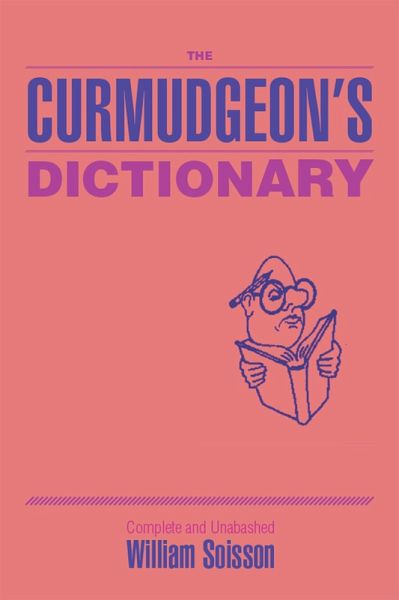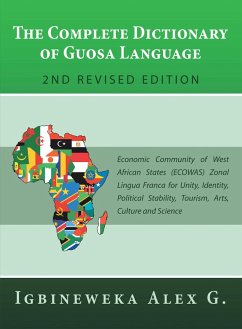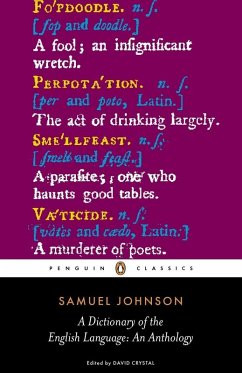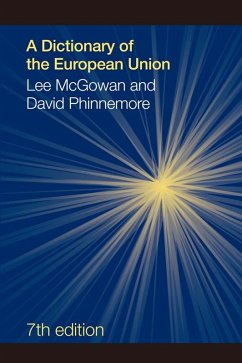
The Curmudgeon's Dictionary (eBook, ePUB)
Versandkostenfrei!
Sofort per Download lieferbar
2,99 €
inkl. MwSt.
Weitere Ausgaben:

PAYBACK Punkte
1 °P sammeln!
Twenty years ago, when the author first read Ambrose Bierce's "Devil's Dictionary," he was ecstatic. Here at last was a creative work that was utterly lacking in discrimination. Worth no regard whatever for race, creed, color, sex, religion, or fast food preference, Bierce kicked everyone's sacred cow right in the udder. The author instantly knew that somehow, some day, he must continue the work begun by Ambrose. So it is that "The Curmudgeon's Dictionary" follows the great Bierce's lead in flaying without mercy the pretentious of our world. At the same time, "TCD" unavoidably reflects many of...
Twenty years ago, when the author first read Ambrose Bierce's "Devil's Dictionary," he was ecstatic. Here at last was a creative work that was utterly lacking in discrimination. Worth no regard whatever for race, creed, color, sex, religion, or fast food preference, Bierce kicked everyone's sacred cow right in the udder. The author instantly knew that somehow, some day, he must continue the work begun by Ambrose. So it is that "The Curmudgeon's Dictionary" follows the great Bierce's lead in flaying without mercy the pretentious of our world. At the same time, "TCD" unavoidably reflects many of the changes in style that have occurred in our language since 1911, when "The Devil's Dictionary" was first published. Many of the old poets, like Biddle Tamey and Opned Teal, so well quoted by Bierce, are gone, having been replaced by such contemporary greats as Taner Bane and Sigson Kolgy, who, though they lack the elegance of the poets of Bierce's day, have the virtues of simplicity and forthrightness. Then, too, changes in science and technology have brought us many new terms such as "computer," "CAT Scan," "Jive," and "Monica," which did not yet exist in Bierce's day. Moreover, changes in the attention span have made it desirable to abbreviate many definitions and support the work of the aforementioned more concise poets. The author has violated this procedure only when considerations of clarity or beauty have made it imperative, as with the haunting "Ode to a Giant Bonsai Tree." Aside from such evolutionary matters, one will find that some of the venerable Bierce's definitions are still valid today and have found their way into this magnificent book in updated form. The updating is no criticism of the master, only recognition that time moves things, if not forward, at least along.
Dieser Download kann aus rechtlichen Gründen nur mit Rechnungsadresse in A, D ausgeliefert werden.













